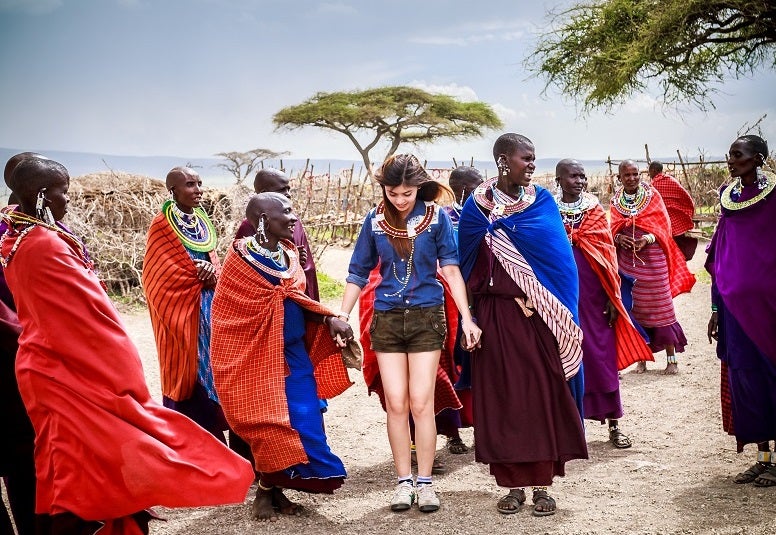
The authentic travel experience should be a boon for Africa, but its missing the mark.
Since 2016, tourism market trends have shifted away from “get-a-way” travel to traveling for ‘authentic’ experiences. This transformation is driven by the world’s largest consumer group—millennials—and amplified by digital platforms and social media but is also echoed across other segments. Destinations and entrepreneurs are catching on and developing ‘off-the-beaten-path’ products that provide travelers greater interaction with local people.
African countries, with their abundant wealth of natural and cultural assets, are perfectly positioned to capitalize on this shift, just as the rise of digital platforms are reducing market access barriers for such products. However, in our new World Bank Group report, we found that while demand for experiencing ‘life like a local’ in Africa is set to outpace growth of arrivals, there are still many supply-side challenges that need to be addressed.
- Standards: Africa’s market share lags other regions, and many products are not of sufficient standard.
- Exclusion and the digital divide: Marginalized groups, often best placed to deliver the product, are at risk of further exclusion.
- Community Impact: Bringing tourism into communities also brings other risks which need to be managed.
In this report titled, Demand Analysis for Tourism in African Local Communities, we explore tourism based in or delivered by communities in Africa—community-based tourism (CBT). This type of tourism includes homestays (hosted accommodation) and experiences like guided walks, cooking classes and story-telling. Our research found that bookings for these products is projected to grow 10% by 2023, almost double the expected 5-7% increase in overall arrivals to Africa. For 2018, the estimated number of visitors is 2.8 million — and could top 3 million in five years.
While small, these numbers spotlight the potential for marginalized and remote communities across Africa. The fact that there is market demand for experiences that in many cases can only be delivered by those excluded from the mainstream tourism industry is promising for the inclusion agenda. The rise of digital platforms like Booking.com or Airbnb reduces market access barriers and can help level the playing field for any tourism service provider who wants to sell directly to consumers. However, the challenges to fully realize this potential are well defined.
Africa is well behind its competitors in developing this tourism niche. The opportunities are not equal and scaling them can drive greater inequality. In addition, development of CBT needs care to avoid the pitfalls of ‘invasive voyeurism’ and other risks to the community.
Despite the abundance and diversity of communities and culture, Africa has the smallest market share of CBT supply (except Australasia) at only 13%. In our research, we found that this is largely due to a lack of awareness (travel bloggers have played a key role in growing this market in other places, particularly in Asia), but also due to a lack of adequate quality. While experiences (for example, a half-day tea-picking) capture about 18% of demand in Africa, homestays account for less than half of that. The tour operators interviewed for our report, stated that standards of comfort, security and cleanliness in homestays were often not acceptable.
While the tourism sector can be highly impactful, the economic and social benefits are not spread equally between destinations, demographics or communities. Much of this depends on the distribution and quality of underlying natural and cultural assets, as well as access (visas, infrastructure, transport services), investment climate and other factors. Market access is critical and the opportunities to participate in the tourism economy depend to a large degree on whether providers can reach their target consumers. The digital economy plays an increasingly important role and can help level the playing field. However, it can also further ‘the digital divide’ and exclude those who are least able to participate.
With the absence of digital infrastructure and literacy, the tourism industry, particularly in less developed countries (LDCs), faces a challenge in bringing many of its suppliers online. Only 15% of households in LDCs have Internet access at home, compared to 84% in developed countries. In Africa, women are particularly disadvantaged—the proportion of women using is the internet is 25% lower than men using it.
Ironically, the digital divide and its potentially exclusionary impact disproportionally affects those who can offer the craved-for authentic experience.
The challenge of how communities engage with the tourism sector is not a new one, but the risks are perhaps accelerated with the advance of digital platforms bringing more products to the market at an unprecedented rate. The CBT niche has often been criticized for voyeurism, with many documented examples of community resentment, unmet expectations and social conflict. Engaging with this niche needs to be done with care to mitigate against these risks and should be always driven by the community itself. Successful examples of this type of tourism usually includes a third-party, such as an NGO, who can support the community in self-organization, decision-making and benefit distribution.
The World Bank Group is exploring how to harness the growing demand for these products and ensure greater inclusion. We are working with digital platforms in the tourism space, including Airbnb and TripAdvisor. Airbnb has committed to invest $1million in developing and training hosts in underserved communities. They are building inventory of this product, training hosts through their Airbnb Academy, and piloting co-hosting models to overcome some of the digital literacy issues that remain a barrier to scaling up across Africa.


Join the Conversation